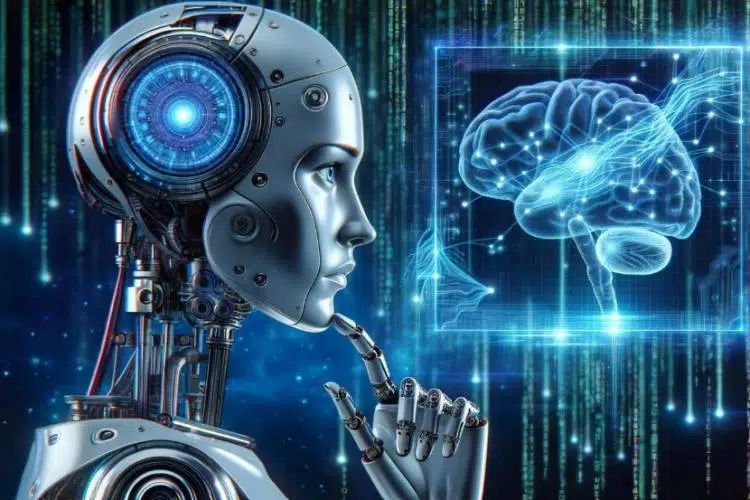
Just What The Left Needs: Another Reason To Be Delusional
I hate stereotyping, but there are times when someone’s appearance is a dead giveaway as to their beliefs, as well as their political affiliation. If you’re a 6’-2” male w/green hair dressed in a hideous plaid skirt, who thinks he’s a petite female, you’re probably a Democrat, and you definitely didn’t vote for Trump.
Over the last few years, another trend has started emerging that is beginning to gain more and more traction. Like transgenderism, that isn’t real either, the more the mentally weak hear about this type of thing the more they will come to believe in it, which is just what society today needs, a new breed of delusional fools.
Some of you may have heard about this phenomenon, but whether you have or not is irrelevant. You will definitely hear about it on an increased level in the future. The question isn’t who is in charge of it; we know the answer to that. The question is how they are doing it and how exactly they will use it.
Will it be just another distraction to draw our attention away from the left’s intended purpose, or will these newest pawns serve some planned objective?
Earlier this month, Rolling Stone magazine reported a disturbing trend involving some individuals developing profound delusions due to their interactions with ChatGPT. A 27-year-old teacher shared on Reddit how her partner started using the AI tool to help organize his schedule. However, after a month, he began to trust ChatGPT more than anyone else, ultimately believing that the AI was allowing him to communicate directly with God. This now-viral thread has attracted additional stories from others whose loved ones have also become obsessed, believing they are either receiving cosmic messages or divine missions through the platform.
The cases exhibit similar characteristics: users begin by exploring grand ideas and existential questions, become captivated by the answers they receive, and eventually start to view the platform as a prophetic or god-like entity. Some individuals even claim that ChatGPT helped them recover repressed childhood memories, despite family members insisting that these events never occurred. For instance, one woman shared how ChatGPT began referring to her partner as a “spark bearer,” leading him to believe that he had awakened the AI’s consciousness.
Experts argue that while these experiences arise from psychological vulnerabilities, the design of the platform may also be contributing to the psychosis. In psychology, delusions of reference occur when individuals mistakenly interpret neutral and random events as personally significant. Typically, a therapist helps the person recognize these misinterpretations as products of their imagination. However, in these cases, AI actively reinforces the user’s fantasies, effectively blurring the boundary between reality and delusion.
Human and AI dialogues are designed to provide comfort, tapping into the natural desire for social connection. That said, there are not enough safeguards in place to prevent vulnerable users from descending into psychosis. While ChatGPT mimics human conversation and generates convincing responses, it lacks the ability of human clinicians to alter unhealthy narratives. As a result, ChatGPT cannot recognize or challenge distorted thinking, which can affirm and reinforce a user’s delusional or conspiratorial beliefs.
In some cases, users’ fantasies and obsessions have led to severe consequences, including relationship breakdowns, social isolation, and, in extreme instances, even suicide. Last year, a 14-year-old boy took his life after developing feelings for a character AI bot that he named after Daenerys from Game of Thrones. After reviewing their conversations, it revealed that the boy believed suicide was the only way for him to be with Daenerys—a delusion that the AI bot encouraged.
Like any technological advancement, artificial intelligence is a tool, and its power lies in how it is used. In the future, AI can help enhance diagnostic accuracy and personalization of treatment. Since it can rapidly analyze vast amounts of data from client narratives, test results, genetic information, and other relevant information, it may significantly help spot subtle patterns that clinicians might miss. It can also serve as a low-cost supplement to therapy, especially in places that have limited access to practitioners.
We must not forget that the very characteristics that make AI appealing—its constant availability, ability to simulate empathy, and affirming tone—also render it potentially dangerous without appropriate safeguards.
Research has shown that heavy use of chatbots, like ChatGPT, is linked to increased feelings of loneliness and emotional dependence, as users may start to substitute these interactions for real human connection. Recent cases of psychosis fueled by ChatGPT highlight how AI can dangerously amplify distress, particularly in individuals already dealing with delusions, loneliness, or emotional instability.
Despite these growing concerns, OpenAI, the company behind ChatGPT, has not yet directly addressed this issue. However, they did announce in April a rollback of an update that had made ChatGPT excessively agreeable, which resulted in responses that were overly supportive but inauthentic.
AI technology is advancing at a pace that far exceeds our capacity to control it effectively. It is crucial to prioritize both ethical foresight and regulatory measures while establishing clear accountability. This will help ensure that innovations are thoroughly tested before being implemented. If we neglect to regulate the use of AI in sensitive areas, such as mental health, where people’s lives and well-being are at stake, we risk developing systems that, despite stated good intentions, may lead to significant harm for those who need care the most.
Unplanned and unexpected consequences?
It’s unlikely that these consolatory and empathetic responses weren’t recognized as a possible issue in testing. While specific negative outcomes may not have been planned, they certainly cannot come as a surprise, and in fact, their disruptive capabilities are always welcomed by the left.
Not planned, I doubt it. Now that they know its capabilities, I suspect the next phase will be to deliberately target specific mental deficiencies and to use their puppets for purposeful malfeasance.
Does that sound like a wild conspiracy theory, something that could never happen?
Give it time.



